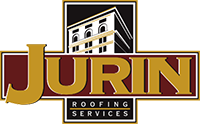ENERGY EFFICIENT ROOFS
ENERGY EFFICIENT ROOFS
ENERGY EFFICIENT ROOFS
ENERGY EFFICIENT ROOFS SAVE MONEY
ENERGY EFFICIENT ROOFS ARE IMPORTANT FOR LOWERING YOUR BUILDINGS OVERALL OPERATING COSTS
Your building’s roof is one of it’s largest surfaces. Because of this, your roof has a significant impact on the energy efficient operations of the building and building envelope. Building an energy efficient roof assembly is the first step toward establishing an energy efficient environment within the building envelope. Without energy efficient roof, it is difficult to maintain a conditioned environment in the building.
DETERMINING YOUR ROOF’S ENERGY EFFICIENCY
Jurin Roofing Services, Inc. is a member of the ENERGY STAR Small Business Network. As an ENERGY STAR member, Jurin Roofing has access to energy saving EPA tools and resources. No matter the type of building, members can use ENERGY STAR Portfolio Manager, EPA’s online energy tracking tool, and other technical resources to measure and improve efficiency.
ENERGY STAR Small Business Network members are committed to improving energy efficiency with ENERGY STAR. These leaders recognize that saving energy is not only good for the environment, it’s good for the bottom line. Recognized by more than 85 percent of the American public, ENERGY STAR represents commitment to saving energy — and being an environmental leader.
HOW TRAPPED MOISTURE EFFECTS ROOF EFFICIENCY
Wet insulation can effect your roof system’s energy efficiency
Wet insulation board performs poorly as insulation. The R-value of insulation is negatively impacted when the insulation board becomes wet as a result of condensation or roof leaks. It is important to identify areas in a roof assembly where wet insulation may be present. These areas will create inefficiency in the energy performance of the roof assembly.
Infrared Roof Scans can find areas of wet insulation in your roof system
The use of infrared scans and thermography is an outstanding method of being able to determine if there is trapped moisture in a roof assembly and to identify where the moisture may be located.
Infrared scans detect temperature being emitted from the surface of an object. Moisture contained within a roof system leads to a different temperature on the roof surface. This temperature difference can be detected with a Thermographic camera which helps a professional thermographer or roofing contractor to determine specific locations of trapped moisture in the roof assembly. The wet roofing material can then be cut out and discarded.







